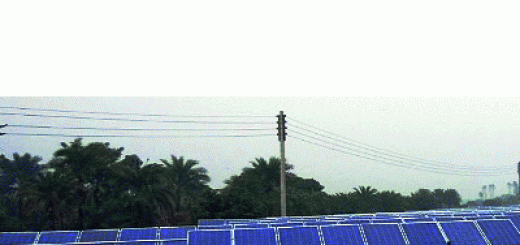Bangladesh in international indexes -Khandoker Adnan Eshfat
Every country wants to creep up the top of any international index meant for showing achievements and stay at the bottom rung of an index meant for exposing the failures like Corruption Perception Index, so is Bangladesh. Coronavirus Anxiety Scale is most probably the latest index (April 16, 2020) developed by Sharman A Lee who teaches psychology at Christopher Newport University, Virginia, USA as coronavirus was detected first in Chinese city Wuhan on 31st December 2019.
Transparency International commissioned the University of Passau’s Johann Graf Lambsdorff to produce the CPI. The 2012 CPI takes into account 16 different surveys and assessments from 12 different institutions but early CPIs used public opinion surveys.
Each year, on various occasions numerous indices are published through studies, reports, surveys and rankings of the participating countries are done accordingly. Governments of the countries become happy or sad in the case of their countries doing well or bad.
Heartthrob outcomes with appreciations from international reports- indicators, indexes, rankings offering Bangladesh’s projectile strictly, determining certainty in multi- dimensional induced global decision makings. Does these pre-medicated, inter-serving decision-making indexes involve compromised to performance evaluations of our good practices in governance, innovative solutions, creative actions, critical challenges we are facing, and the requirement of strong partnership for a sustainable future- measuring from national performance to state intentions are morally face to face too.
Here are some indexes that catch international attention particularly those of Southeast Asians and Bengalis whenever they see the position of Bangladesh:
International reports and indexes are made and published by the most reliable and famous world organisations like the World Bank, IMF, World Economic Forum. Pro-establishment media are also found criticising those indexes.
Despite being at bottom rung of most global indexes in terms of performance, Bangladesh stands out tall in the world when it comes to the question of exporting RMG and contributing to the peacekeeping missions of the United Nations.
Bangladesh secured 7th position in ‘Global Climate Risk Index’ for 2020. Among 150 participating countries of ‘Global Happiness Survey’ for 2020, she stood at 125th position scoring 4.83, the average scoring between 2013 to ‘19 was 4.65, 2019th scoring was 4.46 in the survey. In 2018, study conducted on 100 countries and 1000 cities of ‘Start-up Ecosystem Ranking Report’ among 126 nations our stand was 116th. ‘International Intellectual Property Index’ states Bangladesh at 112th position out of 138 participating countries for 2020. ‘World Competitive Index’ which maps the ‘Competitive Landscape’ of 141 economies ‘103’ indicators organized in 12 themes, in 2019 positions Bangladesh at 105th out of 141 countries. In 2020 ‘Inclusive internet Index’ the deltaic land booked 70th berth among 100 countries while in ‘Internet Availability Index’ it became 72th and in ‘Internet Affordability Index’ its position 65th. In ‘Internet Relevance’ and ‘Internet Readiness’ indices the south Asian nation slips down to 72nd and 65th positions respectively.
In ‘Global Innovation Index’ with average scoring 24.02 from 2011 to 2020, 2020’s Bangladesh’s score 116th among 131 countries with maximum score points 28.1 in 2011 and minimum 20.4 score points in 2020. In the ‘Democracy Index’ Bangladesh booked 80th berth in 2019 with 5.88 points.
By ‘Global Talent Competitiveness Index’ Bangladesh’s positioning (with .46% improvement) 124th among 132 in 2020 and 118th among 125 countries in 2019. In ‘Ease of Doing Business Index’ in 2020s new positioning stands 168th among this time’s 190 participating countries down from 176th place in 2019.
By the ‘Energy Transition Index (ETI)’ 2020s the nation scored 48.4%, positioning stands 87th among 115 participating countries, showing ‘System Performance’ 54%, ‘Transition Readiness’ 43%. In ‘Global Social Mobility Index’ in 2020 it stands 78th among 82 countries scoring 40.02 out of 100.
In ‘Sustainable Development Goal Index’ the state’s 2020s positioning 109th among 166 countries. In ‘Corruption Perception Index’ 146th among 180 countries. Satisfying 107 spots of the index the present rank is 101st in ‘Henley Passport Index’ 2020. Approximately acquiring 5.120% more resolving towards hunger crisis, from 2019s 88th position among 117 countries, Bangladesh was positioned 75th among 107 countries in 2020. Scoring 56.4% in economic freedom, Bangladesh positioned 122nd among 186 countries in ‘Economic Freedom of the World’ index. Bangladesh in ‘Global Gender Gap Index’ with projection of secured 50th position globally among 153 countries for the term 2020. Slipping 4 notches down from 2019’s 108th positions among 181 countries. Bangladesh is now positioned at 112th among 182 countries in ‘KidsRights Index 2020’ and representing in ‘Global Childhood Index’.
In ‘Human Capital Index’ the nation’s score is .46 (46%) out of 1-point scale for 2020; 2020s ‘Human Development Index’ positioning was 133th among participating 189 countries. Projecting 151st among participating 180s globally in ‘World Press Freedom Index’ for the year 2020.
Notching ‘17’ upwards from 2018s second last 179th among 180 participating countries with 29.56 points, this time Bangladesh performed 162nd among 180 countries for 2020 in ‘Environmental Performance Index (EPI)’; scored 35.9 in 2020 which is below the average ‘46.7’, positioned 112th among 138 countries in ‘Global Knowledge Index’.
To establish an indicator, whether multi-dimensional decision-making indexes or, the indexes has some basis indexes or basis factors. For an example ‘World Competitiveness Scoreboard’ stating 4 main competitiveness factors with 5 sub factors under each said main competitiveness factors. 1) Economic performance along with sub-factors, 1.1. Domestic economy, 1.2. International trade, 1.3. International investment, 1.4. Employment and 1.5. Prices, 2) Government efficiency, 2.1. Public finance, 2.2. Fiscal policy, 2.3. Institutional framework, 2.4. Business legislation and 2.5. Societal Framework, 3) Business Efficiency, 3.1 Productivity, 3.2. Labour market, 3.3. Finance, 3.4. Management practices and 3.5. Attitudes & values, 4) Infrastructure, 4.1. Basic infrastructure, 4.2. Technological infrastructure, 4.3. Scientific infrastructure, 4.4. Health, 4.5. environment and education.
Bangladesh government is trying heart and soul for replacing democracy with development but the development narrative is not that much easy. The southeast Asian nation is battling in multiple sectors. Scientific research is such a sector where funds were very restricted. n












Recent Comments